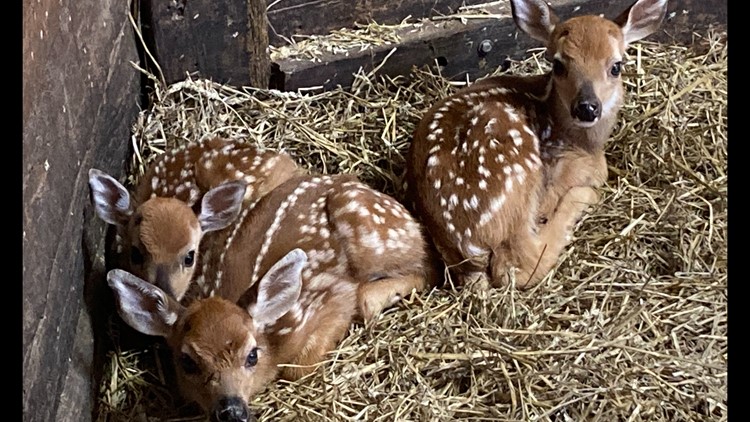BUFFALO, N.Y. — The New York Department of Environmental Conservation (DEC) is reminding people to enjoy wildlife from a safe distance and resist the urge to move or pick up newborn wildlife.
The DEC says human contact with wildlife can cause unintentional consequences to the animals.
Human contact with wildlife can result in unintended consequences detrimental to the animals people intend to help.
"This is the time of year New Yorkers are more likely to see young or newborn animals in their yards and mistakenly think these animals need help," Commissioner Seggos said in a released statement.
"The recently fledged birds or baby rabbits in your yard likely have parents hiding nearby keeping an eye on their offspring. Please resist the urge to touch these wild animals and instead enjoy the encounter from a safe distance. Remember - if you care, leave it there."
Many animals give birth in the spring months, so animal sightings are common. They say that while some newborn animals learn from their parents, others learn on their own.
White-tailed fawns, which are born in the late spring, can walk shortly after they're born, but they spend most of their first days lying in tall grass or under trees. During this time, they are often left alone by their mother, except during nursing.
People see these fawns think they they're abandoned, which is rare. Mom usually comes back at least three-four times a day to nurse.
After a couple weeks, the fawns are up and moving more with the female doe.
The DEC also reminds people that wildlife are not pets and that keeping wildlife in captivity is illegal.
If you find a young animal that appears injured, or orphaned, you should contact a wildlife rehabilitator that is licensed by the DEC.
For more information about young wildlife, visit DEC's website. https://www.dec.ny.gov/press/press.html



